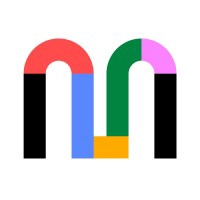
Marvel App
A robust tool for designing interactive prototypes and user interfaces.
Figma, Inc.
Figma is a widely used web-based prototyping and design tool that enables designers and teams to collaborate in real-time. Established in 2012, Figma has rapidly evolved into an industry standard for user interface and user experience design. With over a million active monthly users, it provides a comprehensive platform for creating interactive prototypes, wireframes, and design systems, making it an essential tool for startups and established enterprises alike.
One of Figma’s standout features is its real-time collaboration capability, which allows multiple users to work on the same file simultaneously. This feature is especially valuable for distributed teams, as it diminishes the friction often associated with sending files back and forth. Users can leave comments, which fosters communication and feedback directly within the design files. Furthermore, Figma offers a robust set of design tools that include vector editing, layers, and constraints, which allows users to create high-fidelity designs without the need for additional software.
Figma also excels in prototyping functionalities. Designers can easily create interactive prototypes directly from their designs, incorporating transitions and micro-interactions that mimic how the final product will function. These prototypes can be shared with stakeholders and clients for feedback and testing, facilitating a seamless review process. An additional advantage is that Figma’s design system features enable users to create consistent interfaces by organizing components and styles that can be reused throughout projects.
Businesses across different industries leverage Figma’s capabilities. For instance, startups working on new apps use Figma to iterate quickly on their product’s designs and present prototypes to investors or early users. A software development company might utilize Figma to design an intuitive web application, ensuring their development team can refer to real-time updates and changes. Larger enterprises benefit from Figma’s ability to maintain a design system across teams, ensuring that branding and UX/UI standards remain consistent throughout various products and platforms.
Furthermore, Figma supports integration with many popular project management and development tools, such as Slack, Jira, and GitHub, enabling smoother workflows and improved productivity. This integration complements its robust feature set, making it a versatile tool that fits into various aspects of the product development lifecycle.
per editor, professional plan with advanced features
This tool offers both free and paid plans. Check their website for detailed pricing information.

A robust tool for designing interactive prototypes and user interfaces.

Visual collaboration platform for design and brainstorming sessions.

A powerful platform for creating interactive prototypes and collaborating on designs.

A powerful design tool for creating user interfaces and prototypes.
Figma provides comprehensive platform support across Web browsers, Windows computers, Mac computers. This cross-platform availability ensures you can access and use the tool wherever you work, providing a seamless experience across all your devices.
Figma offers a flexible pricing structure with both free and paid plans to accommodate different needs and budgets.
Figma prioritizes security and data protection with a comprehensive set of features, including Multi-Factor Authentication, End-to-End Encryption, Data Backup, Role-Based Access. The platform complies with major security standards and regulations, including GDPR (General Data Protection Regulation), CCPA (California Consumer Privacy Act).
Figma is specifically designed to meet the needs of startups, small businesses, enterprise organizations, freelance professionals, remote teams, developers, designers. The tool provides features and functionality specifically tailored to address the unique challenges and requirements of these user groups.
Figma offers several significant advantages, including real-time collaboration, intuitive user interface, robust prototyping capabilities, design system features, cross-platform accessibility, integration with project management tools, community and resources for learning, extensive plugin ecosystem. However, potential users should consider some limitations, such as requires internet access for optimal use, performance can lag with large files, steeper learning curve for beginners, limited offline functionality, pricing can add up for larger teams, some features are locked behind paid tiers, responsive design tools need improvement, limited version control options.
Figma is built on and integrates with modern technologies including React, Amazon Web Services (AWS). This robust technological foundation ensures reliable performance, scalability, and seamless integration capabilities.
Figma is versatile and can be used in various scenarios, including: Designing mobile apps, Creating web application interfaces, Collaborative branding projects, Iterating on user experience designs, Building component libraries, Prototyping for user testing, Sharing design specs with developers, Creating marketing assets, Conducting design workshops, Implementing feedback from stakeholders. These use cases demonstrate the tool's flexibility and broad applicability across different business needs.
Figma was established in 2012 and is headquartered in San Francisco, USA. Since its inception, the platform has evolved and grown to become a trusted solution in its field.
Jobicy
578 professionals pay to access exclusive and experimental features on Jobicy
Free
USD $0/month
For people just getting started
Plus
USD $8/month
Everything in Free, and:
omg, gotta say I really love using Figma for my UI/UX projects! It’s super easy to collaborate with the team in real-time, like we can all jump in and edit stuff at once. The design features are pretty slick too; I’m totally into how you can customize components and keep everything organized in a single repo. But, tbh, sometimes it gets a bit laggy when you have a lot of artboards open – kinda annoying but not a dealbreaker. Overall though, I’m happy with it and def recommend giving it a shot if you’re working on anything design-related!